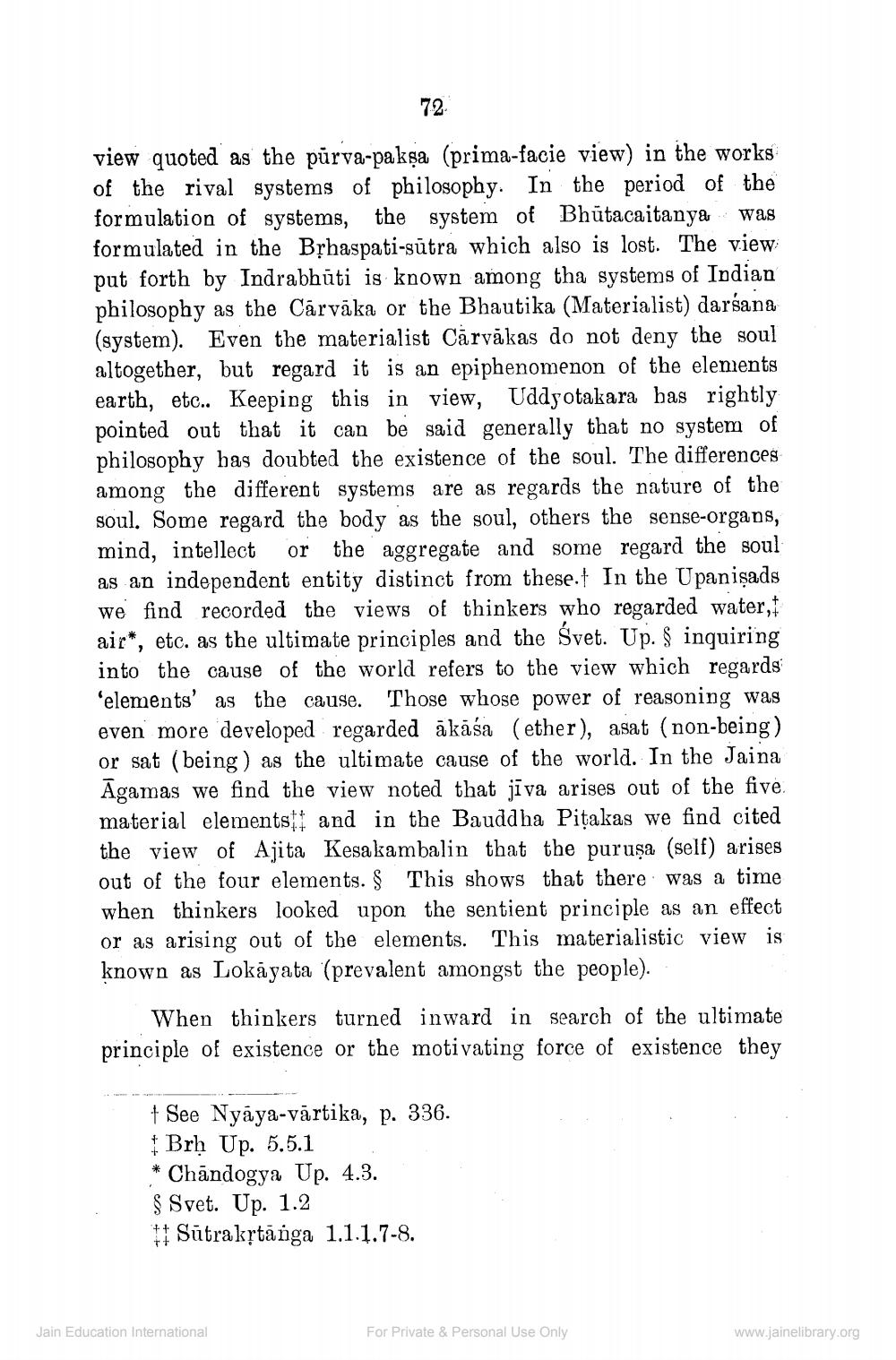________________
was
view quoted as the purva-paksa (prima-facie view) in the works of the rival systems of philosophy. In the period of the formulation of systems, the system of Bhutacaitanya formulated in the Bṛhaspati-sutra which also is lost. The view put forth by Indrabhuti is known among tha systems of Indian philosophy as the Carvaka or the Bhautika (Materialist) darśana (system). Even the materialist Carvākas do not deny the soul altogether, but regard it is an epiphenomenon of the elements earth, etc.. Keeping this in view, Uddyotakara has rightly pointed out that it can be said generally that no system of philosophy has doubted the existence of the soul. The differences among the different systems are as regards the nature of the soul. Some regard the body as the soul, others the sense-organs, mind, intellect or the aggregate and some regard the soul as an independent entity distinct from these. In the Upanisads we find recorded the views of thinkers who regarded water, air*, etc. as the ultimate principles and the Svet. Up. § inquiring into the cause of the world refers to the view which regards 'elements' as the cause. Those whose power of reasoning was even more developed regarded ākāśa (ether), asat (non-being) or sat (being) as the ultimate cause of the world. In the Jaina Agamas we find the view noted that jiva arises out of the five. material elements and in the Bauddha Pitakas we find cited the view of Ajita Kesakambalin that the purusa (self) arises out of the four elements. § This shows that there was a time. when thinkers looked upon the sentient principle as an effect or as arising out of the elements. This materialistic view is known as Lokayata (prevalent amongst the people).
72
When thinkers turned inward in search of the ultimate principle of existence or the motivating force of existence they
See Nyaya-vārtika, p. 336. Brḥ Up. 5.5.1
* Chandogya Up. 4.3. § Svet. Up. 1.2 Sutrakṛtānga 1.1.1.7-8.
Jain Education International
For Private & Personal Use Only
www.jainelibrary.org




